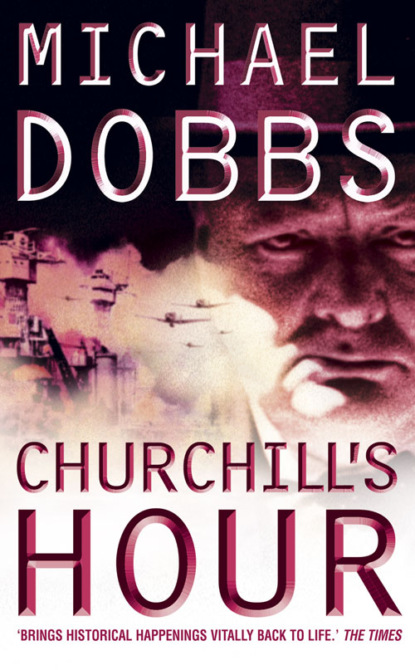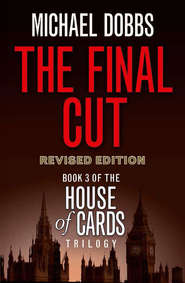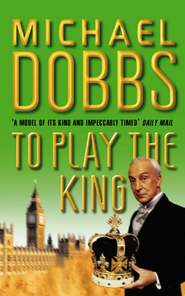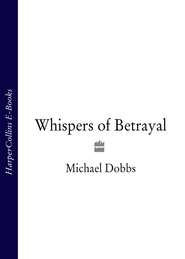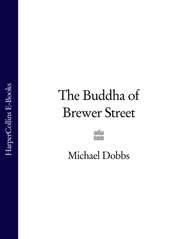По всем вопросам обращайтесь на: info@litportal.ru
(©) 2003-2024.
✖
Churchill’s Hour
Автор
Год написания книги
2019
Настройки чтения
Размер шрифта
Высота строк
Поля
‘I don’t understand, Papa.’
‘After this war is over, whoever holds the reins of authority, it will not be Britain. We are too small, too content, perhaps even too kind. You need an edge of ruthlessness to rule. So whose creed shall we find in the ascendant? Hitler and his fascism? Commissar Stalin and his Bolshevist crusade? Or America, perhaps, which worships before the altar of Mammon? Which would you choose, Pamela?’
‘Why, America,’ she said uncertainly.
‘Better America, a thousand times better. Even though at times they totter around like blind men, especially when they set foot in other parts of the world. They don’t understand that all men are not as they are. And even when they stumble over the truth, they pick themselves up and carry on as if nothing has happened.’
‘But you have praised their generosity…’
‘Sometimes they are like gangsters.’
‘They have given us destroyers, Lend-Lease…’
‘In return for which they have taken all our gold and dollar reserves, demanded we give them military bases in every corner of the globe, and now their negotiators have started talking about handing over our art treasures and ancient manuscripts.’ His chin fell to his chest. ‘The bonfire of glories that once was the British Empire belongs to an age that has passed. That wretched man Goebbels was right. And so, in his way, was Randolph.’
‘Randolph?’
‘When Mr Roosevelt announced Lend-Lease, he likened it to lending a neighbour a hose pipe when his house catches on fire. You don’t quibble about its cost, so long as it’s returned. But Randolph says it’s more like offering a piece of used chewing gum, never expecting it to be returned.’
‘You act so warmly towards all the Americans…’
‘They are the New World, the young world. And I trust them as much as I would any seven-year-old. So we will douse them in flattery and humbuggery, and never give up hope that our American friends will find within themselves the will to fight the right war. But we can no longer rely on that.’
‘So what will you do?’
‘Do?’ For a moment he seemed to be searching for an answer in the flames. ‘I shall do whatever it takes. I gave Randolph my word. So tonight, and every night, as I stand before my court martial, I shall have to show that I have done something to ensure that Mr Roosevelt has pitched his tent a little nearer the sound of gunfire.’
She stroked his balding head, trying to bring him comfort, as though he were a young child. ‘What can I do, Papa?’
His eyes found her. ‘Do what only you can do, Pamela. Give me grandchildren. Give our family and our world a future. Make this all worthwhile.’ He kissed her hand. ‘What more can an old man ask?’
She had been right. This was not the time. She screamed, but only inside. He couldn’t know, didn’t deserve to be showered in the wretchedness that was welling up inside her. That would come later, when she was in bed, alone. He had so many other lives to care for; she would have to look after her own.
She left him staring into the embers of the dying fire.
FOUR (#ulink_dd722e0a-8330-5d52-b2b3-a15ba06d088d)
Spring. New life. Daffodils. Crocus. Blossom. Warmer days. Death.
The bombers were back. The intermittent raids of winter had given way to a renewed onslaught that pounded London night after night.
Queues. Britain’s way to win the war. Line after line of women waiting patiently for whatever was left. Hour after hour, without knowing what might be there when at last they came to the head of the queue, ration book in hand, coins in purse or pocket. The Ministry of Food had just announced five exhilarating new ways of serving potato—wartime ‘champ’, hot potato salad, potato pastry, potato suet crust. ‘And save those orange rinds,’ the official advertisement insisted. ‘Grate your orange peel and mix a little with mashed potatoes. The potatoes will turn an exciting pink colour!’
But would still be mashed potatoes.
Yet not everyone dined on pink mash. It was a foodstuff entirely unknown to Lady Emerald St John. In truth, her name was not Emerald—she had been born a Maud, but she thought it common. She was not a ‘proper’ lady, inasmuch as she was American and had married into the title, although she had parted from her husband many years previously, relieving him of not only his marital obligations but also a substantial chunk of his fortune. And, above all, Emerald was no saint. It was why people flocked to her dinner parties, always assured of entertainment, excitement, intrigue—and a little wickedness. Not sexual wickedness, Emerald had worn herself out on three husbands and was past most of that, but as the folds about her face had fallen to wrinkles, she compensated with a tongue that had developed the snagging capacity of a billhook. Sitting at one of her tables was like playing roulette with one’s reputation. Someone would always walk away a little poorer.
Pamela arrived late, just as the others were preparing to sit down. The introductions were hurried and she wasn’t concentrating; she’d squeezed in a couple of drinks on the way. But there was a Japanese gentleman, whom people addressed as ‘Your Excellency’, identifying him as the ambassador, Mamoru Shigemitsu. He seemed lost in conversation with his American counterpart, Winant, whom she recognized, and another man whom she did not, American by the cut of his clothes, tall, middle-aged, yet still athletic in build. The party was completed by two parliamentarians and their wives, a Free French naval officer and two young French women, but all eyes seemed to be on Shigemitsu.
The Japanese was small in physique and most earnest in his expression, polite, but persistent, and very defensive. That was no surprise. He had arrived at the Court of St James’s three years earlier, and with every passing season his task had grown more difficult. Japan was at war with China. It was not a popular war. The newspapers were filled with countless headlines about Japanese brutality, accompanied by disgracefully provocative photographs. Not that the British could tell the difference between a Chinese or Japanese, of course. They even delighted in their ignorance. As much as Shigemitsu tried to reassure his audiences that Japan had no intention of attacking British possessions, not a soul believed him. Yet still he did his best.
‘Japanese believe in Hakko-Ichiu,’ he said.
‘How fascinating, Your Excellency,’ the diminutive Lady St John purred across a forkful of fish. ‘What exactly does it mean?’
‘It means “all the world one family”. At peace.’
‘How beautiful. It’s a religious idea, is it? That when we’ve all finished being beastly to each other on this earth, we go to the same heaven?’
‘No, no,’ Shigemitsu protested. ‘Peace on this earth. All one family. On this earth.’
‘Oh, I see. I’m so relieved. There are so many rumours that Japan wants to attack us in the Far East. Tell me, Your Excellency, that’s not going to happen, is it?’
‘Japanese wish British people nothing but harmony,’ the Japanese responded, picking over his words as though he had a mouthful of bones.
‘And the Chinese?’
Shigemitsu swallowed his trout unchewed. He examined his plate, not wishing to catch Lady St John’s eye for fear of betraying his annoyance. Her bluntness was ill-mannered; was she female and stupid, or simply Western and therefore incorrigibly rude?
‘Our only wish is to create what we call a Greater East Asia Co-Prosperity Sphere.’
‘Ah, so that’s what you are doing in China. Trying to make them all prosperous. Now I understand.’
The ambassador laid down his knife and fork. Of course she didn’t understand, and the silly woman was probably incapable of doing so, but it was his duty to try to bring her to some form of awareness.
‘The European powers—French, Dutch, British—have many colonies in Asia. Control all oil and other raw materials. We consider the position…unbalanced.’ He gave a little bow, as if to indicate that he was entirely satisfied with his selection of the word. ‘Japan wants only similar influence in our own continent. Access to raw materials in Asia like Britain—even America.’
He made it sound so reasonable, but he had unwittingly opened up a new flank. The unknown American took it as an invitation to join in.
‘And you make war in order to get them,’ he stated.
The ambassador’s colour darkened. ‘We do not want war. War would not continue if Britain and America did not keep sending weapons to China along the Burma Road. My government believes that is very unfriendly act.’
‘More than ten million dead Chinese since the war started four years ago, most of them civilians. Three hundred thousand killed in Nanking in a single winter. If you want to talk about unfriendly acts, maybe we should start with that.’
‘Perhaps, sir, and begging your pardon’—he gave another little bow—‘you are not aware of the full facts of war.’
‘I guess you’re right, Mr Ambassador. I don’t know enough about war. But since I arrived in London a few days ago, I’m beginning to catch on fast.’
‘Perhaps, sir, you will permit me to suggest that you discuss the matter with your European friends, who have been fighting colonial wars for hundreds of years. They might be able to hasten your understanding.’
There was another little bob, like a karate chop.
‘Mr Ambassador,’ the American said, refusing to use the honorific title of ‘Excellency’, ‘Americans hate all colonial wars. Which is why we insist on the right to continue sending supplies to China.’
‘You will forgive me, sir, if I see American history in a slightly different colour. I believe—I ask you to correct me if this is not true—that your country purchased the entire territory of Louisiana from the French.’
‘Not the same thing at all. Louisiana isn’t a colony, it was a natural extension of the United States.’





